Check out some books by your tutor Fiona Veitch Smith … (click on the book covers to find out more)
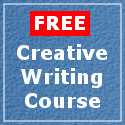 Hello everyone, welcome to the first session of our free online creative writing course. Over the next eight sessions we will be looking at different aspects of creative writing and trying our hand at various forms. I’d strongly encourage you to have a go at the exercises along the way, and please feel free to leave comments or ask questions at the end. If you have arrived on this page without first reading the home page and frequently asked questions page (on tab above) please go back and do so now. If you have read them, enjoy the course!
Hello everyone, welcome to the first session of our free online creative writing course. Over the next eight sessions we will be looking at different aspects of creative writing and trying our hand at various forms. I’d strongly encourage you to have a go at the exercises along the way, and please feel free to leave comments or ask questions at the end. If you have arrived on this page without first reading the home page and frequently asked questions page (on tab above) please go back and do so now. If you have read them, enjoy the course!
Creativity and Art
What is creativity? The Collins dictionary defines it as ‘the ability to cause something to exist’. Without getting into too much of an existential discussion, I would say that with every thought that is expressed, something has been created. It was Descartes who said: ‘I think, therefore I am’; well I would add, ‘I think, therefore I create’ (do you feel a God complex coming on?). But how do we express our thoughts? Sometimes we do it verbally, other times by body language and still again through what is loosely termed ‘art’.
Art takes place when a thought is expressed and fixed in a way that other people may experience it on an aesthetic level – through music, writing, painting, sculpture, choreography and so on. Many artists say that their best work takes place when they ‘by-pass’ the thought and simply express the feeling. This may be true, but for writers, who use a verbal medium, a feeling must first be converted into a thought before it can be put into words. Don’t over analyse the thought before you express it, as this way you can ‘channel’ the purest interpretation of the feeling, but some cognitive process needs to take place. Some writers prefer to mull over a thought and give it form before they put pen to paper – I’m one of them – but it’s good practice to try and switch off the ‘editor’ at least for the first draft. First response trigger exercises are useful in this regard and can release some unexpected words and images.
Exercise 1:
Write down your first response to these words or phrases:
- Blue ball
- And that’s when the sadness came
- Coffee
The first task of a good writer is to convert feelings into thoughts and then into words. This is the raw material that can then be converted into something more permanent. Some writers refuse to toy with their first drafts, believing their creativity will be diluted; I disagree. Allowing your critical mind to improve a piece of writing is where the craftsman meets the artist. Something produced only by the former will lack soul and something by the latter will lack form. Good writing is a combination of art and craft.
For public consumption
Art, of course, is highly subjective and one woman’s masterpiece is another woman’s unmade bed. We all have the ability to create, but whether or not our creation is ‘art’ must be left to the eye or ear of the beholder.
In this session we will look at how you can craft those creative thoughts into creative writing to share with other people. And that’s what sets ‘public’ writing apart from ‘private’ scribblings – there’s a perceived readership in mind. When I ramble on in my journal, I am the only one who will read it (hopefully!) so my only concern is getting my thoughts down on paper. The moment I want someone else to read it I begin to consider ways to improve the presentation and craft it into something more aesthetically pleasing. I consider which words may sound more colourful, whether or not my sentence structure is grammatically correct, whether I’m using evocative imagery, and so on.
Story, feeling or image?
What is it about those creative thoughts that you think might be of interest to other people? Do they speak of an eternal truth or a common experience? Do they make you laugh or cry? Do they suggest a story that will entertain or a poem that captures a moment that must be shared?
Exercise 2: In 50 words or less write down why you want to write then list three creative thoughts that you’ve had lately (each 10 words or less). These may be an image, a musing, a ‘truth’, a story, or so on. If you haven’t had any, take yourself for a walk and look around; what grabs your imagination? Browse through a newspaper or a magazine; do any stories or pictures catch your attention? Think back over your day; did anything funny, charming, shocking or unusual happen to you or someone you know?
Poetry or prose?
Some people are more suited to writing poetry than prose and some people do well at both. Although we won’t be discussing it in this course, other people are more suited to script. I’m one of them. I’ve had relative success as a prose writer and in fact have managed to earn a living from it, but it’s taken years of hard work to get to this point. I recently branched out into scriptwriting and found that I had much more of a natural ability. (If you’re interested in finding out more about scriptwriting, check out getting started in playwrighting). You may find that you’ve been trying to make it as a poet when actually you’re more suited to prose. Now I don’t want to pigeonhole anyone, but ask yourself the following questions:
- Are you more attracted to films than stills?
- Do you enjoy telling people ‘stories’ from your life?
- Do you prefer to read stories or poems?
If yes, to these, then you may be more suited to prose than poetry. If no, then the opposite may be true. If it’s ‘sometimes yes, sometimes no’ then perhaps you are suited to both. We shall be looking at how to write poems in more detail in session 7, but suffice to say, a poem is like a snapshot of a moment. If you can’t rest until you know what happened before and after, then prose may be your genre.
Exercise 3: Take one of the three creative thoughts you wrote down in Exercise 2, then list 20 separate words that communicate or describe that thought. Do not, at this stage, link the words into sentences. Once you have your 20 words use them in a poem of 16 lines or less. Then, take the same 20 words and work them into a short story of under 300 words. Which exercise came more easily? Which form has best communicated your creative thought?
Further Resources:
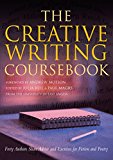
There are some excellent resources out there for creative writers. To get quick ‘starter’ images when your own well is dry I recommend The Writer’s Block by Jason Rekulak. I’m currently working through The Creative Writing Coursebook by Julia Bell and Paul Magrs and finding it very useful.
The next creative writing course session is how to write a short story. But before you move on to that, please feel free to leave a comment or ask a question in the box below.
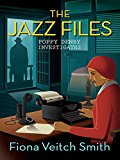
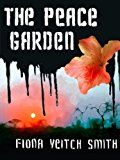
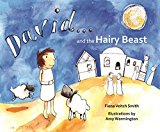
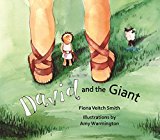
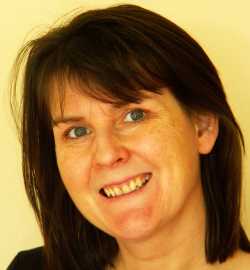 Welcome to The Crafty Writer's free online creative writing course, presented by Fiona Veitch Smith, a freelance journalist, editor, author, playwright, screenwriter and writing teacher. I hope that you'll see a dramatic improvement in the quality of your writing as you work through this course.
Welcome to The Crafty Writer's free online creative writing course, presented by Fiona Veitch Smith, a freelance journalist, editor, author, playwright, screenwriter and writing teacher. I hope that you'll see a dramatic improvement in the quality of your writing as you work through this course.
I am so happy to have found this course. I had not considered whether poetry or prose was easier for me and I enjoyed seeing the very different results of each one. I look forward to lesson two. Thank you so much for this kick start.
You’re welcome,Ally. Hope you enjoy the rest of the course.
Hi Fiona
I’ve just done the first stage of your course and enjoyed it.
I’ve been thinking about writing for years and now it’s time to have a go.
Thanks for this start.
Kenneth
Hi Kenneth, glad to have helped.
Interesting exercise. I chose my 20 words without considering how they would be used. I found it more difficult to fit pre-determined words into a poetic structure than one of prose, but that is to be expected. Both came fairly smoothly and I found the length constraints to be a worthy challenge. On to the next phase.
Onwards and upwards!
Thanks for this course,it’s insightful and rewarding. I’m looking forward to diving into the course’s exercises.
Again thanks.
You’re welcome Donald. I hope you enjoy the rest of it.
Hi Fiona, Thanks for sharing this content. It has helped me gather my thoughts and I feel more confident to give writing a shot. I’m looking forward to completing the courses and learning as much as I can. Thanks again.
You’re welcome, Hannah. Happy writing.
This was really insightful. Already doing the exercises. Thanks for this. Can’t wait to dive in the next topic.
Hi,
I’m Drishti. I’m from India and I am 17 years old. I love writing books but I don’t have a nerve to finish it. Actually I need a proofreader to read my works.
Fiona, thanks so much for this course! I am a beginning writer, and so far, this has been extremely helpful. I look forward to completing the rest of the course!
You’re welcome Ariana. I hope you enjoy the rest of it.
Very nice, however i didnt know if after finishing the exercises you are going to revise or not? You have mentioned that you wont but i think if you did it will help more to benefit from the course.
Thank you
This is a free course Nermeen. You don’t pay, I don’t get paid. When I teach creative writing in the real world I get paid £30 an hour. If you would like to pay me £30 an hour then I can give feedback on all your exercises. However, I assume you would not want to pay that. Please enjoy the course for what it is – a free gift.
My story and poem turned out to be about the day my grandson who lived with me was killed by a train. This was not my plan.
Wow emotions I think I held inside surfaced. This was hard but cathartic.
It was a kind of freedom. I am glad I chose to take this class. I have always found it easier to express my feelings and thoughts in written form. Thank you. I will probably cry for the next hour ortwo,or three but it’s okay. My granson,who also loved to write songs and sing in the orchestra at school and coffee shops downtown would have understood. We both have so much to say.
‘
Let’s do this.
Dear Janice. I am so sorry to hear about your grandson. I hope writing about it will help you find healing.
Just getting back into my writing and this looks like a good way to kick start my creativity. So far so good. Thank you.
Hey Fiona,
In the very first place, I wouldlike to thank you for putting up this excellent coursework for budding writers like me.
I’d like to ask you two specific things:
1)You have recommended 2 books during the course of the first session which i would love reading. All i want to know is when should I begin reading them? After or during the course?
2)The other thing is that I am always exceeding the word count. I just fail to express myself in the given number of words. Should I do something about it?
Hello Kriti,
I’m glad you’re enjoying the course. Regarding the books, consider them ‘optional extras’. They are books I have found helpful but they are not specifically linked to the course. You can do the course with or without them – the course itself is completely self-contained.
Regarding word count, I have given a word count in order to make the course manageable in terms of time and to keep students moving. Some writers get bogged down on one piece of writing and go over it again and again. So the word count is just a guide to try to keep you ‘reigned in’ but if you exceed that that’s absolutely fine.
All the best
Fiona
Hello Fiona,
I’m delighted to hear from you. Thank you so much for replying and helping me form a clearer picture. And yes, I am enjoying the course so much that I almost forgot that I had posted questions
Hi Fiona,
Your course online is just what I need to jump-start my creativity within. Putting pen to paper and releasing thoughts each day, no matter what, is my way of bringing ideas to life on paper. Gratefully, Lynda from Moncton, New Brunswick, Canada
So glad to have been able to give you a jump start, Lynda. Long may your engine rev!
I’ve been writing for a very long time. When I saw this I couldn’t resist the opportunity to re-examine my approach to writing by taking this course.
I am just beginning this creative writing course. I have always wanted to write short stories or a novel but never could get started on my own. I am hoping this course will give me some foundational information to help me forge ahead.
Hi Fiona, first let me thank you for this initiative. I have always had this urge to write meaningfully especially short stories but I haven’t found a clear, simple and free tutorial to guide me. I intend to complete the course and grab a pen and hit the road writing.
Hi Nurdin, that’s lovely to hear. I wish you well with your writing.
I know that I will always be writing even if I don’t get paid. I have published two sets of poems and currently working on my first story. The exercises so far are encouraging. I am never short of ideas only time as I work full time as an Accountant. There are a lot of poems in the pipeline and ideas for future stories.
Good to hear, Kenneth. Keep on writing!
Thanks Fiona. Just finished first three lessons. Exactly what i needed. Was surprised at what it unlocked in me. Looking forward to pursuing more.
Scott
Hi Scott, that’s great to hear. I hope you go from strength to strength.
Hie there.I am so glad that I came across this page and lemme tell you that you are doing an amazing job by guiding people who are interested in writing.Thanks a tonne for imparting us with the knowledge of correct writing.
Thanks Sumi. I hope you get something out of the course.
Hello! I did the lessons and enjoye d them..I laughed at myself as I tend to be quite humorous at times!????thank youso much!
Glad you enjoyed them. Happy writing!